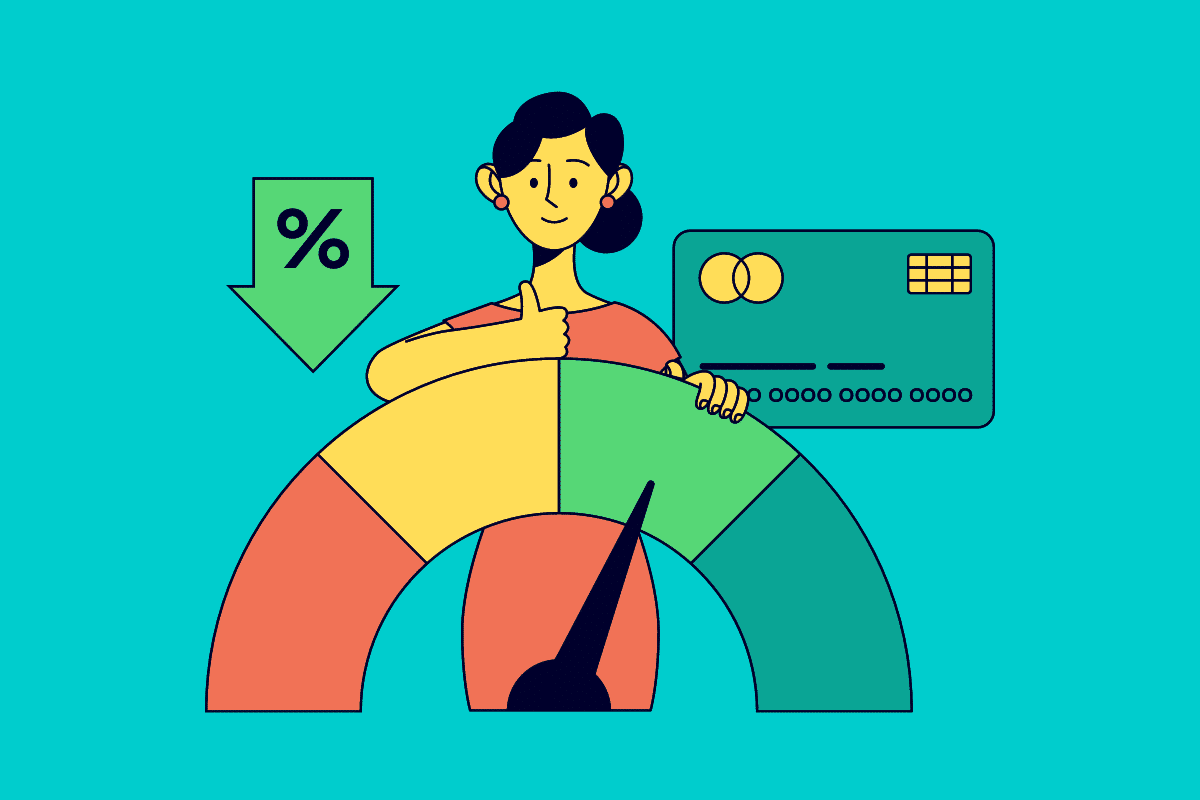What is The Minimum Credit Score for Credit Card Approval in Canada?
By Heidi Unrau | Published on 26 Feb 2024

The minimum credit score for credit card approval in Canada is roughly 660. However, this is not set in stone. It depends greatly on the type of credit card you’re applying for and the issuing financial institution. Other factors also come into play like your income, employment history, and debt load. It can also depend on which credit bureau the credit card issuer uses, Equifax or Transunion. While there is no definitive answer to this question, here’s what to know about the minimum credit score for credit card approvals in Canada.
Minimum Credit Score for Different Types of Credit Cards
In Canada, a credit score is a three-digit number ranging from 300 to 900. It represents your creditworthiness based on your credit history. The higher the score, the better your chances of being approved for credit products. Luckily, there are a variety of credit cards designed for people with a range of credit scores.
Some credit cards require a higher credit score to qualify because the issuer reserves them for people who are the most creditworthy. Other types of credit cards have a much lower credit score requirement, and some don’t require a credit score at all. Let’s take a look at the approximate credit scores required for different types of credit cards:
Standard Credit Cards: 660+
Based on my experience as a lender, standard credit cards typically require a minimum credit score of 660 and up. These cards have moderate interest rates and may come with rewards or cash back programs. They allow people with a solid credit history to earn rewards on their purchases without paying high annual fees.
Some standard credit cards may also offer perks, such as travel insurance, extended warranties and purchase protection. These benefits can provide added value and peace of mind when using your credit card for everyday purchases.
Premium Credit Cards: 760+
Premium credit cards come with an annual fee and provide better rewards and exclusive perks not available on standard cards. Typically, they require a minimum credit score of 760 and up. These cards offer a higher earning rate for rewards or points for purchases that can be redeemed for travel, merchandise, and more. They often come with higher annual fees and much higher income requirements than standard cards.
Premium credit cards usually offer additional benefits such as free airport lounge access, concierge services, travel insurance, front-of-the-line access to event ticket sales, curated experiences, and more. These perks are a significant draw for people who value luxury benefits or exclusivity.
Store Credit Cards: 600+
A store credit card is issued by a retail store, typically in partnership with a bank or financial institution. Examples of popular store credit cards in Canada include the Canadian Tire Mastercard and the PC Financial Mastercard. These cards differ from traditional credit cards because the rewards can only be redeemed at a specific store or group of affiliate stores. They tend to have lower credit score and income requirements, but the interest rates may be higher than standard cards.
Store credit cards are ideal if you frequently shop at a specific retailer and want to benefit from the card’s exclusive rewards, discounts, or promotional financing offers. They’re also a great alternative for people who have a fair credit score and want to improve their credit without submitting a security deposit.
Student Credit Cards: 600+
Student credit cards have lower credit score requirements of around 600 so that young people with a limited credit history can access them. These cards may offer higher reward rates for purchases that align with student expenses, like textbooks and school supplies. Often, many of them require a low annual income or no income at all to qualify.
Student credit cards can be a good way to establish a credit history and earn rewards while in school. However, it’s important to use them responsibly and not accumulate too much debt while still in college.
Secured Credit Cards: No minimum credit score
Secured credit cards are designed for people who are credit-challenged. Therefore, most do not require a minimum credit score for approval. Instead, they require a refundable deposit as collateral to secure the card – hence the name. In the event you default on the card, the issuer uses your security deposit to offset or settle the balance owed. These types of cards are an excellent option if you have bad credit or no credit history.
Using a secured credit card responsibly can help build or rebuild credit over time. Some may offer an upgrade to an unsecured credit card after a certain period of time if you have kept your account in good standing.
Prepaid Credit Cards: No credit score required
Prepaid credit cards require you to load the card with your own money. Therefore, they’re an ideal choice if you want to control spending, avoid debt, or don’t have a traditional bank account account. Prepaid credit cards do not perform any credit checks, therefore, there is no credit score requirement at all. On the downside, using one won’t improve your credit score. That’s because you are using your own money for purchases, not borrowing and paying off a balance like you do with traditional cards.
Using prepaid credit cards responsibly can help manage your budget and spending habits effectively. Some prepaid credit cards also offer benefits like cash back, rewards, or the ability to build savings over time.
[Offer productType=”OtherProduct” api_id=”64dfacf8646f0366d002a015″]Other Factors That Affect Credit Card Approval in Canada
While your credit score is the most important thing impacting your credit card approval, it’s not the only thing issuers look at. A typical credit card application will ask for your employment status and income to determine your ability to manage new debt. Issuers also assess your credit file for other clues that affect your creditworthiness. Here’s what credit card companies look at beyond your credit score:
Income & Employment Status
Your income and employment status indicate your ability to repay credit card debt. Credit card issuers want to see that you have a stable source of income and a steady job. Typically, the higher your income and the more steady your employment, the better your chances of credit card approval. If you have a low income, erratic work, or no income at all, you may need to provide additional documentation or collateral.
Additionally, credit card issuers may consider your job title and industry. For example, if you work in a high-paying industry, such as finance or law, you may get approved for a credit card with a higher credit limit.
Debt-to-Income Ratio
The debt-to-income ratio measures the amount of debt you’re carrying compared to your income. This important factor ranks high when lenders assess creditworthiness but it indicates your ability to pay (ATP) back new debt. A higher ratio can indicate that you may have difficulty repaying additional debts, which makes you a higher-risk borrower for lenders.
Ideally, your debt-to-income ratio should stand below 36%. This demonstrates that you have sufficient income to cover your debt obligations. If you have a high debt-to-income ratio, it tells creditors that you are more likely to miss payments. If you’re carrying a lot of debt, you may need to pay down your balances before you apply for another credit product. Otherwise, you can increase your income to improve your chances of being approved for a credit card.
Public Records
Credit reports indicate things like accounts that are in collections, bankruptcies, consumer proposals, and court judgements involving money owed. These are called Public Records, and they tell lenders if you’ve had serious financial difficulties in the past. Even if you have rehabilitated your credit score, Public Records can still make or break your credit card approval.
For example, some credit cards will not approve your application if you’ve experienced a bankruptcy or consumer proposal in the last 6 to 7 years. This is common among premium credit cards. Other credit card issuers will approve you with a history of bankruptcy or consumer proposal as long as you have a good credit score now.
Equifax vs TransUnion Reports Can Impact Credit Card Approvals
Your credit card approval in Canada can also be impacted by whether the issuer pulls your credit report from Equifax vs TransUnion. While both bureaus collect similar types of financial data, each one uses a slightly different formula to calculate your credit score. For this reason, it’s not uncommon for your credit score to vary between the two. Since credit card issuers typically base their decision on the report from just one bureau, the use of Equifax or TransUnion could potentially influence the outcome of your application if one reports a lower credit score than the other.
Before you apply for a credit card, use free credit score apps to determine if your credit score differs between reporting agencies. For example, Borrowell pulls your Equifax credit report while Credit Karma pulls your TransUnion report. If one gives you a higher score than the other, consider applying for credit cards that pull your report from the same credit bureau. A quick Google search can help you identify the credit bureau that different credit card issuers use. You can also contact the issuer of your desired credit card and ask which bureau they use.
The Bottom Line
The minimum credit score required for credit card approval in Canada varies depending on the type of credit card you seek, but a score of 660 is enough to qualify for most standard cards. By understanding all the factors that impact your approval, you can focus on cards that you most likely qualify for.
